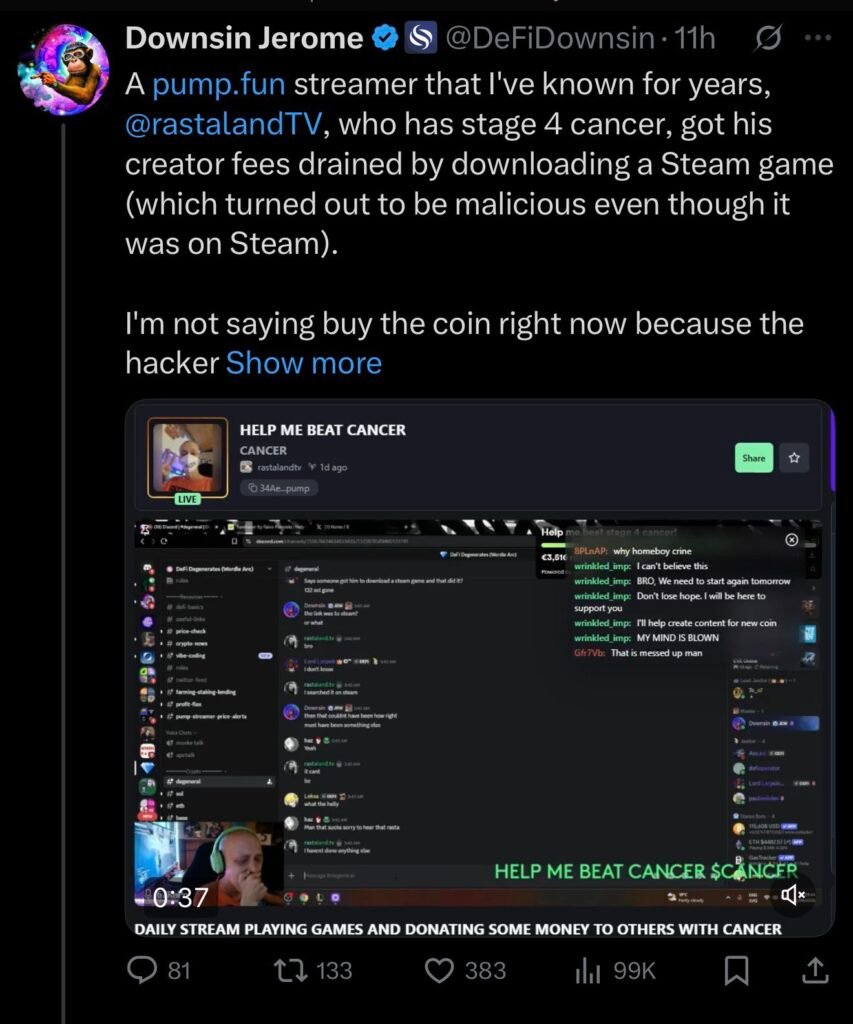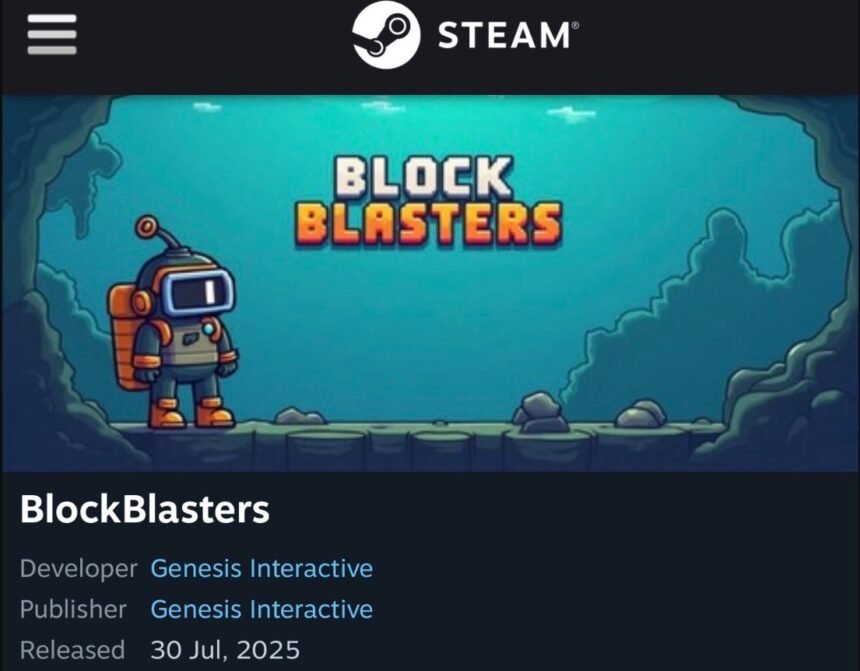In Brief:
- RastalandTV’s Loss: Twitch and Pump.fun streamer, RastalandTV, battling stage-4 cancer, lost over $32,000 in crypto due to malware introduced by the game BlockBlasters on Steam.
- Immediate Support: Alex Becker, a crypto influencer, promptly sent $32,500 to RastalandTV to cover the loss, highlighting strong community support.
- Wider Impact: The malware affected approximately 478 users, suggesting losses possibly exceeding $150,000 across the platform.
Malware Attack Through BlockBlasters
The gaming and streaming communities faced a shocking event when RastalandTV, a streamer on Twitch and Pump.fun dealing with a severe health crisis, encountered a devastating security breach. The incident occurred after he downloaded a game called BlockBlasters from Steam, following a recommendation from his chat. This game, seemingly harmless as a 2D platformer, had been compromised with credential-stealing malware that siphoned over $32,000 from his digital wallet. This money was crucial as it was earmarked for his ongoing cancer treatment.
The impact on RastalandTV was profound, both financially and emotionally, triggering an immediate response from the digital community. Alex Becker, a well-known figure in the crypto space, stepped forward, replenishing the lost funds by sending $32,500 directly to a new, secure wallet for RastalandTV. This swift act of solidarity was not isolated, as the broader streaming and crypto communities also rallied to support him, manifesting the closely-knit nature of these groups.
Investigations into the breach revealed that the game began as malware-free. However, following an update on August 30, BlockBlasters started harboring malware capable of stealing sensitive information like login credentials and wallet keys. This malware tampered with Microsoft Defender settings to evade detection and continued to compromise user data stealthily. The broader impact was significant, with hundreds of accounts potentially compromised, and total losses speculated to run beyond $150,000.
ZachXBT, an on-chain analyst, chastised Steam for not catching the malicious update sooner, pointing out the extended period during which the malware was available.

The incident has raised numerous questions about the security protocols of Steam, particularly the integrity of games that receive the “Verified” badge, which in fact only pertains to compatibility, not security. This has led to heightened scrutiny and calls for more stringent security measures for games, especially those from indie developers or games that receive significant updates post-launch.
While some online sleuths have speculated about the identity of the culprits behind the malware, no definitive legal action has been confirmed. Law enforcement agencies continue to work with researchers who have provided malware samples and network data, aiming to trace the origin and bring the perpetrators to justice.
This event is not an isolated incidence of malware distribution on Steam. Past occurrences have seen other games used as vessels for malware dissemination. Despite these precedents, Steam’s parent company Valve has yet to comment on this specific breach, maintaining a silence that has left many users uneasy about future security on the platform.
As RastalandTV continues to rebuild from this ordeal, the incident underscores the vulnerabilities inherent in digital platforms and the real-world implications of online security breaches. It also highlights the potential for community response in times of need, painting a complex picture of vulnerability and solidarity within the digital frontier.












